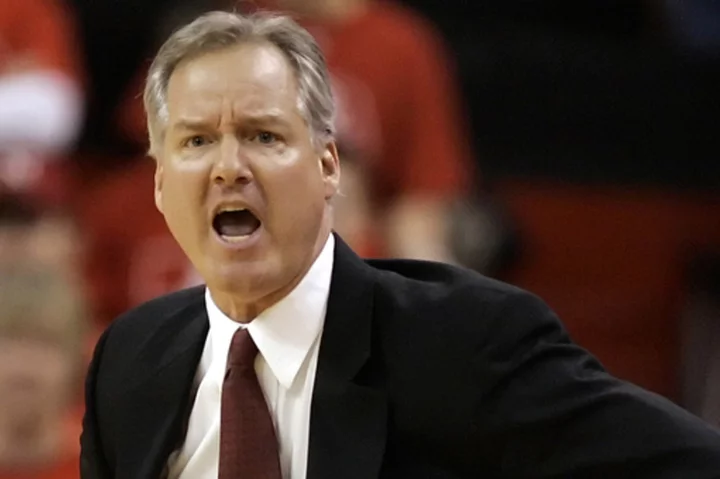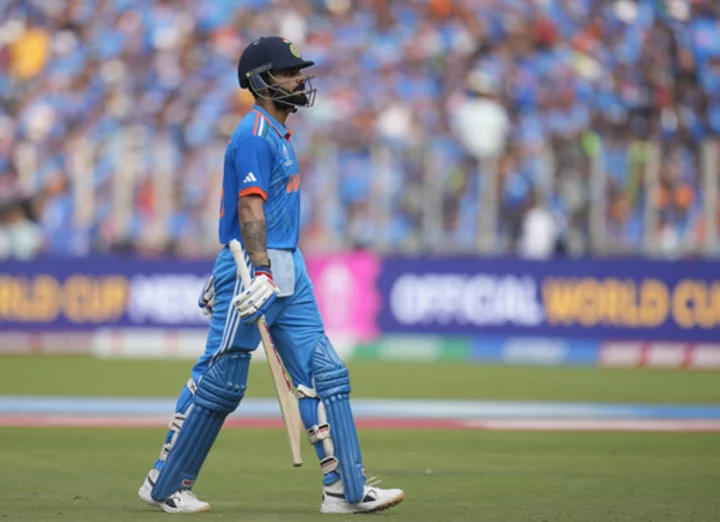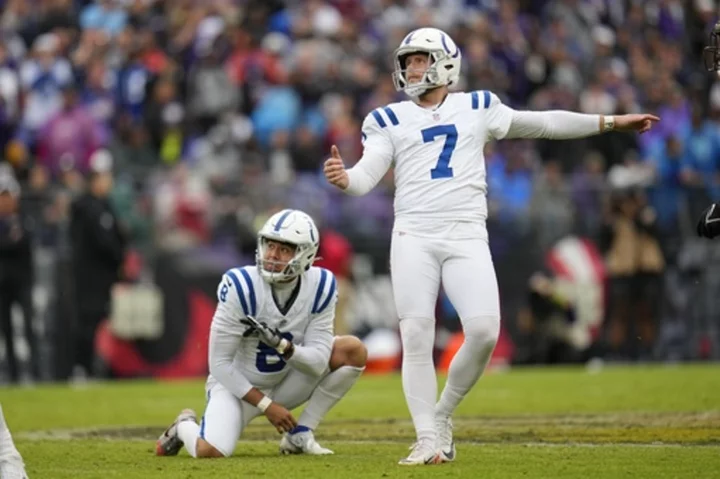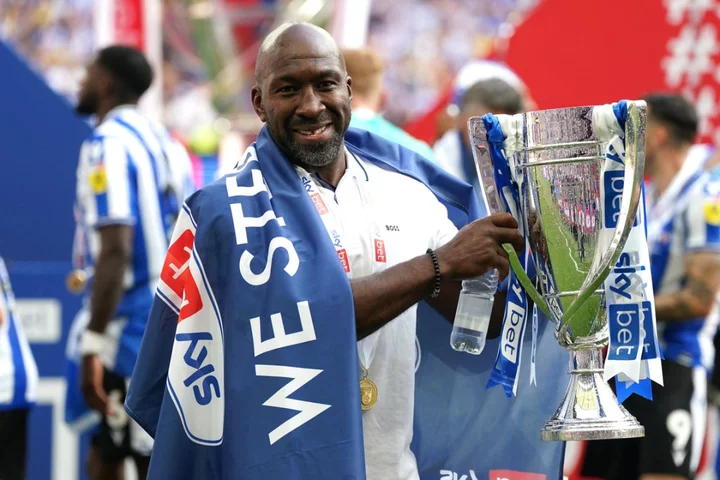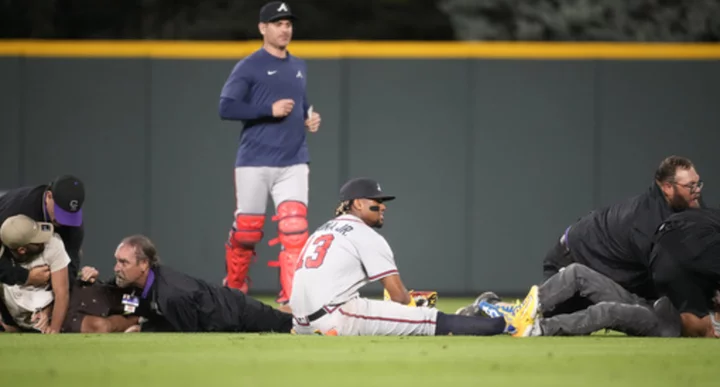England can cope without Keira Walsh — here is how Sarina Wiegman can adjust
When Keira Walsh got injured, there was a collective groan of sympathy for a world-class player missing the rest of the tournament, but also for the rest of England’s squad. They must now deal with the loss of Walsh, the deep-lying playmaker who knits the team’s approach play together and so brilliantly patrols the space in front of the back four. Walsh is probably Sarina Wiegman’s most important player, certainly in the absence of Leah Williamson and Beth Mead, and England have now lost all three of the players who led them to European Championship glory. I have a lot of empathy for this team. In 2002, Faye White, Katie Chapman and I were all out. White had an ACL injury and my leg was broken. Chapman was pregnant. At the time, we were all integral players for England and were trying to qualify for the World Cup. In the group stages, we finished second to Germany in the group which meant we went into a play-off system. We beat Iceland over two legs and then had to play France to see who would clinch the final spot for the World Cup. We lost both games. I remember thinking that the three of us being out was a driving factor to not qualifying for the 2003 World Cup. It was devastating to watch France progress through the tournament and England not having any involvement. You could see the impact once Walsh went off on the game. England’s left, Lauren James and Rachel Daly, had been surging into the Danish half, pinning them back and generating chances and field tilt; that stopped. Arsenal’s excellent young midfielder Kathrine Møller Kühl had been tasked with stopping Walsh; now she was free to drop off, help Denmark build through the thirds and join in some attacks. Georgia Stanway moved back into the Walsh role, with Laura Coombs coming on as an 8; this meant England generally sat deeper, pressing less high without the security Walsh offers and losing Stanway’s bite higher up the pitch for dangerous turnovers. England have to solve several problems, but the first is probably mental. There are a lot of strong characters and experienced, quality players in that dressing room, but England’s spine in the Euros was Mary Earps, Williamson, Walsh, Fran Kirby and Mead – only Earps is still there. The downside of having world-class players and being able to pick them consistently, as Sarina has done, is that when you lose one or two in a department in short order, the change can be pretty tricky to manage. England need leaders and the pressure on Earps, Millie Bright and Stanway is now greater than ever. The next issue is tactical. Walsh’s most natural replacement, Lucy Staniforth, was only on the standby list and has gone home. England could change formation, perhaps bringing in a third centre-back to help the ball progression from deep or drop Stanway into the pivot role with two 8s ahead of her or, more likely, another defensive midfielder to make a double pivot. Coombs did not look out of place, but there is an argument for Jordan Nobbs’ energy and aggression in that area too, not least because if all that is left to Stanway, you miss out on her going forward as well and it would leave England light in terms of players joining attacks from midfield. England’s current approach means they must be able to build the ball through the thirds and circulating the ball quickly and safely around the back, and breaking the lines by going through or over, are both key. Walsh was instrumental to both, although it’s worth saying that Alex Greenwood was moved to centre-back against Denmark because even Walsh can’t do that alone. The pressure on Greenwood is now very intense; much of England’s ability to progress from deep will now be down to her and this is one reason why Sarina could opt to add another defender to the mix and go to a 3-4-3 system. England could also go for a slightly different approach. Great sides, and England are one, are expected to control the ball and hog possession, but tournaments can often favour a more counter-attacking approach. While England are not as brutally quick and athletic as the USA, for example, James, Daly, Lauren Hemp, Beth England and Chloe Kelly are all very dynamic, quick runners. England could focus on solidity in the middle and longer, more direct passing to a rapid front three or four. However Sarina addresses these issues, it is a huge loss to England and the tournament as a whole that Walsh will be missing, for some or all of it. The World Cup is about showcasing the best our sport has to offer and Walsh has joined the already too long list of star players who are absent. We need to get better at understanding the risks of injuries, why they are happening, and managing loads across the women’s game. More investment, especially in sports science and nutrition, at every level of the sport is required. Until that happens, and the injured list diminishes, our flagship events will be poorer for it. Read More Women’s World Cup TV schedule: How to watch every match today As Sarina Wiegman solves one problem – a bigger one presents itself In Keira Walsh, England lose the one player who is impossible to replace Australia thrash Canada to save Women’s World Cup dream from the jaws of a nightmare Women’s World Cup group permutations: How can each team qualify? Nouhaila Benzina: The hijabi-wearing Moroccan making World Cup history
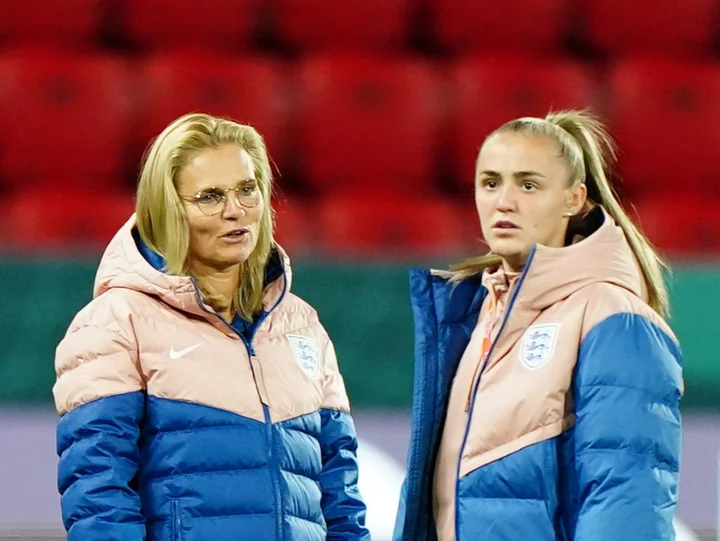
When Keira Walsh got injured, there was a collective groan of sympathy for a world-class player missing the rest of the tournament, but also for the rest of England’s squad. They must now deal with the loss of Walsh, the deep-lying playmaker who knits the team’s approach play together and so brilliantly patrols the space in front of the back four.
Walsh is probably Sarina Wiegman’s most important player, certainly in the absence of Leah Williamson and Beth Mead, and England have now lost all three of the players who led them to European Championship glory.
I have a lot of empathy for this team. In 2002, Faye White, Katie Chapman and I were all out. White had an ACL injury and my leg was broken. Chapman was pregnant. At the time, we were all integral players for England and were trying to qualify for the World Cup. In the group stages, we finished second to Germany in the group which meant we went into a play-off system. We beat Iceland over two legs and then had to play France to see who would clinch the final spot for the World Cup. We lost both games. I remember thinking that the three of us being out was a driving factor to not qualifying for the 2003 World Cup. It was devastating to watch France progress through the tournament and England not having any involvement.
You could see the impact once Walsh went off on the game. England’s left, Lauren James and Rachel Daly, had been surging into the Danish half, pinning them back and generating chances and field tilt; that stopped. Arsenal’s excellent young midfielder Kathrine Møller Kühl had been tasked with stopping Walsh; now she was free to drop off, help Denmark build through the thirds and join in some attacks. Georgia Stanway moved back into the Walsh role, with Laura Coombs coming on as an 8; this meant England generally sat deeper, pressing less high without the security Walsh offers and losing Stanway’s bite higher up the pitch for dangerous turnovers.
England have to solve several problems, but the first is probably mental. There are a lot of strong characters and experienced, quality players in that dressing room, but England’s spine in the Euros was Mary Earps, Williamson, Walsh, Fran Kirby and Mead – only Earps is still there. The downside of having world-class players and being able to pick them consistently, as Sarina has done, is that when you lose one or two in a department in short order, the change can be pretty tricky to manage. England need leaders and the pressure on Earps, Millie Bright and Stanway is now greater than ever.
The next issue is tactical. Walsh’s most natural replacement, Lucy Staniforth, was only on the standby list and has gone home. England could change formation, perhaps bringing in a third centre-back to help the ball progression from deep or drop Stanway into the pivot role with two 8s ahead of her or, more likely, another defensive midfielder to make a double pivot. Coombs did not look out of place, but there is an argument for Jordan Nobbs’ energy and aggression in that area too, not least because if all that is left to Stanway, you miss out on her going forward as well and it would leave England light in terms of players joining attacks from midfield.
England’s current approach means they must be able to build the ball through the thirds and circulating the ball quickly and safely around the back, and breaking the lines by going through or over, are both key. Walsh was instrumental to both, although it’s worth saying that Alex Greenwood was moved to centre-back against Denmark because even Walsh can’t do that alone. The pressure on Greenwood is now very intense; much of England’s ability to progress from deep will now be down to her and this is one reason why Sarina could opt to add another defender to the mix and go to a 3-4-3 system.
England could also go for a slightly different approach. Great sides, and England are one, are expected to control the ball and hog possession, but tournaments can often favour a more counter-attacking approach. While England are not as brutally quick and athletic as the USA, for example, James, Daly, Lauren Hemp, Beth England and Chloe Kelly are all very dynamic, quick runners. England could focus on solidity in the middle and longer, more direct passing to a rapid front three or four.
However Sarina addresses these issues, it is a huge loss to England and the tournament as a whole that Walsh will be missing, for some or all of it. The World Cup is about showcasing the best our sport has to offer and Walsh has joined the already too long list of star players who are absent.
We need to get better at understanding the risks of injuries, why they are happening, and managing loads across the women’s game. More investment, especially in sports science and nutrition, at every level of the sport is required.
Until that happens, and the injured list diminishes, our flagship events will be poorer for it.
Read More
Women’s World Cup TV schedule: How to watch every match today
As Sarina Wiegman solves one problem – a bigger one presents itself
In Keira Walsh, England lose the one player who is impossible to replace
Australia thrash Canada to save Women’s World Cup dream from the jaws of a nightmare
Women’s World Cup group permutations: How can each team qualify?
Nouhaila Benzina: The hijabi-wearing Moroccan making World Cup history



